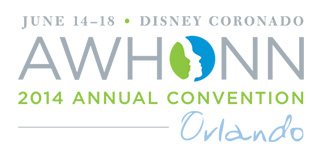A
Response to the Call to Action: A National Picture of Breastfeeding Support Provided in Neonatal Intensive Care
Title: Response to the Call to Action: A National Picture of Breastfeeding Support Provided in Neonatal Intensive Care
- Review the factor related to breastfeeding support by NICU nurses nationally.
- Discuss the provision of human milk and breastfeeding support in a national sample of NICUs.
- Identify nursing characteristics and work environment where significantly higher fractions of infants received breastfeeding support and human milk.
Design: Cross-sectional, observational
Setting: NICU
Sample: 104 NICUs, 6060 nurse survey respondents,15,233 infants nurses cared for on their last shift worked, and 7886 VLBW infants cared for on these units from the VON database.
Methods: Secondary analysis was used to examine nurse survey data collected in 2008 from the parent study funded by the Robert Wood Johnson Foundation, and infant hospitalization data from 104 NICUs in the Vermont Oxford Network (VON), a NICU quality collaborative. Analysis was conducted using bivariate and multiple general linear regression models.
Results: The majority (54%) were discharged on formula only. Few infants (6%) were discharged on exclusive human milk. The remaining infants (42%) received human milk mixed with fortifier or formula. Nurses reported providing breastfeeding support to one in five infants whose parents were present. Sixty percent of infants had parents present for part or the entire shift. Only half of the NICUs had a lactation consultant (51%). Significantly higher fractions of infants received breastfeeding support and human milk (p <0.05) in NICUs with supportive professional practice environments, baccalaureate-prepared nurses, and nurses with at least five years NICU experience.
Conclusion/Implications for nursing practice: The country is falling far short of the Surgeon General’s recommendation for this high-risk pediatric population. The findings suggest NICU nurses provide breastfeeding support around the clock, typically without a lactation consultant available. This study provides evidence nurses are essential to providing lactation care to NICU infants, for whom the receipt of human milk is an issue of patient satisfaction, quality patient care, effectiveness, and survival.
Keywords: Nurse work environment, practice environment score, breastfeeding support, human milk, NICU
